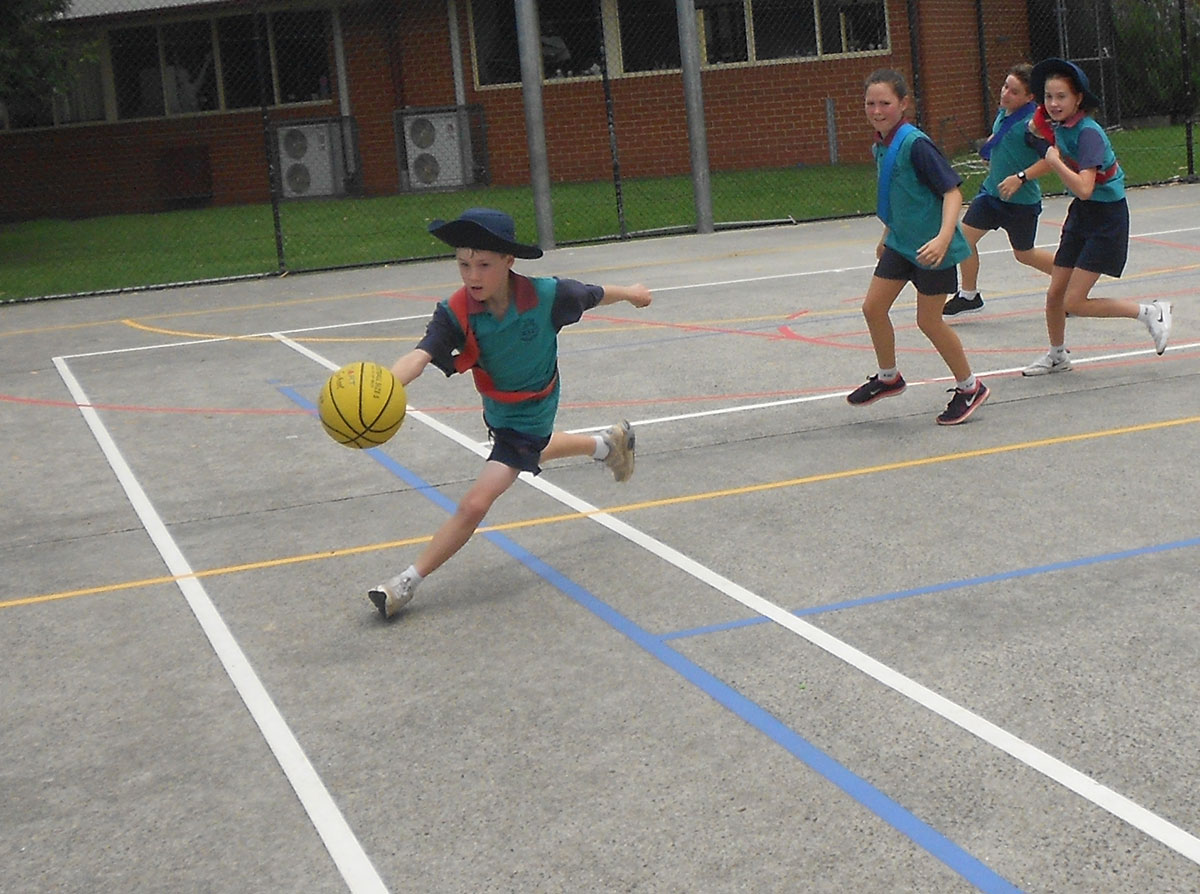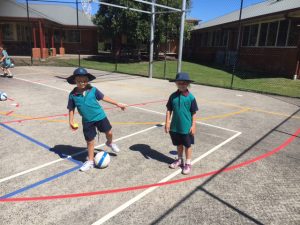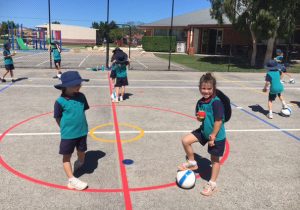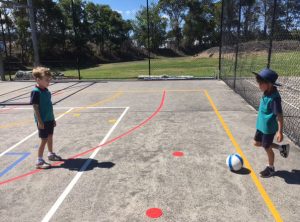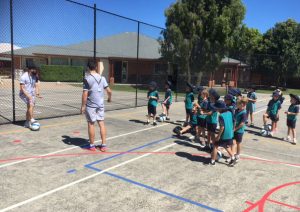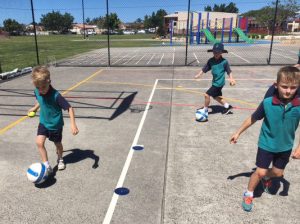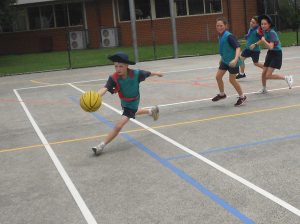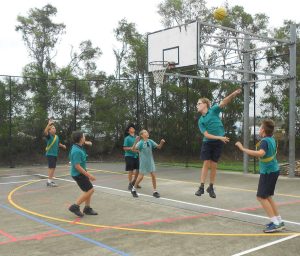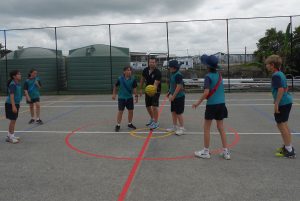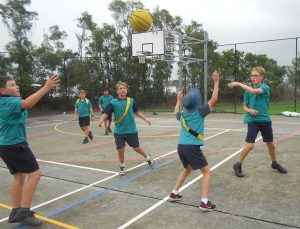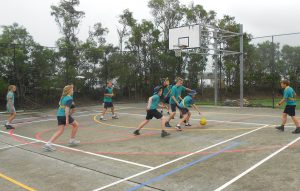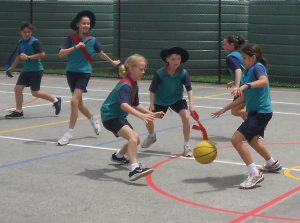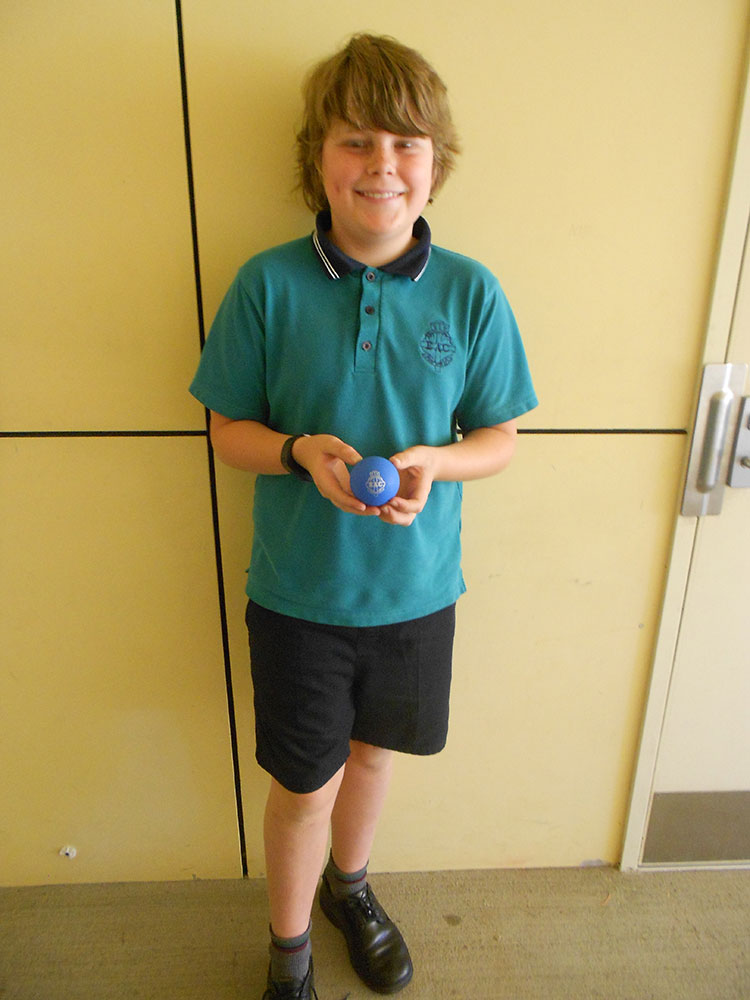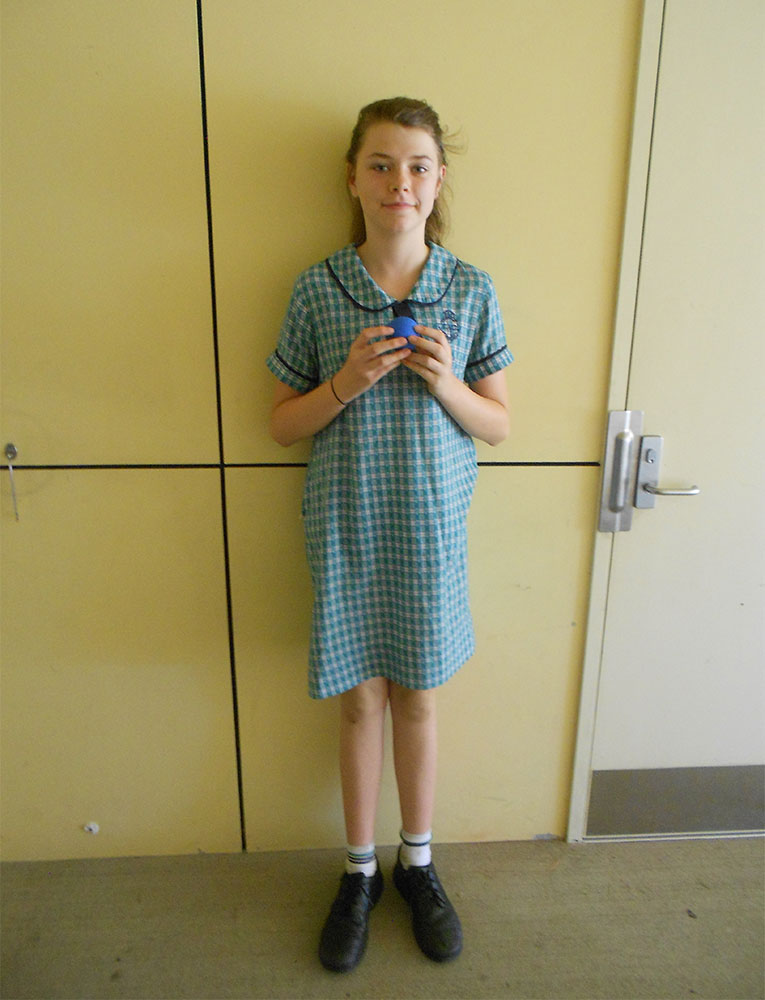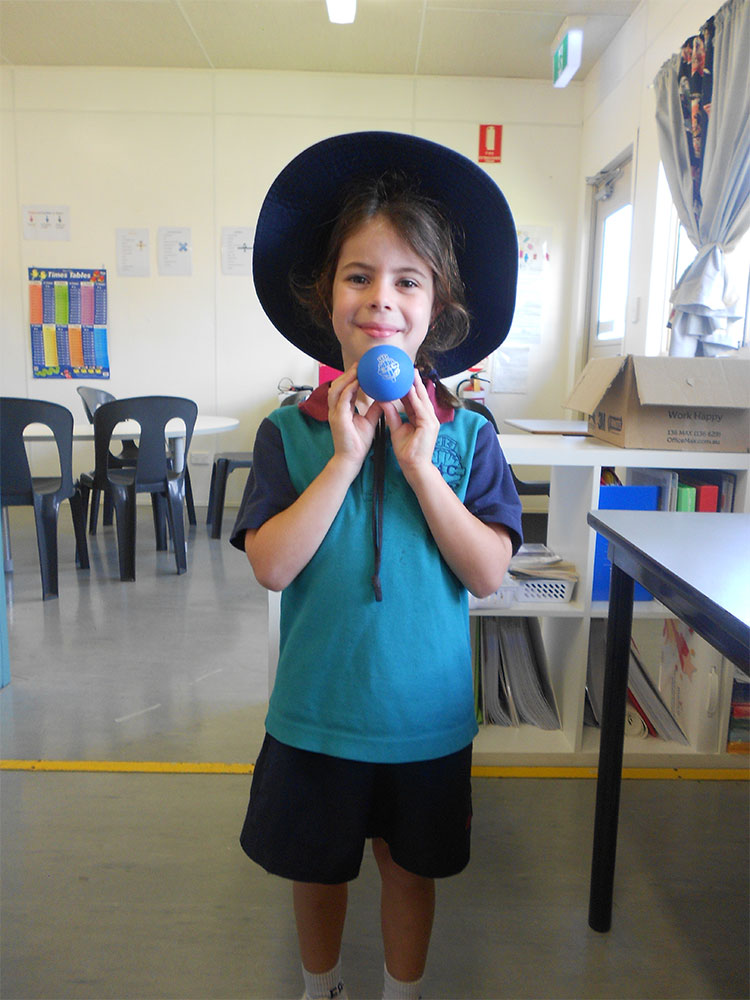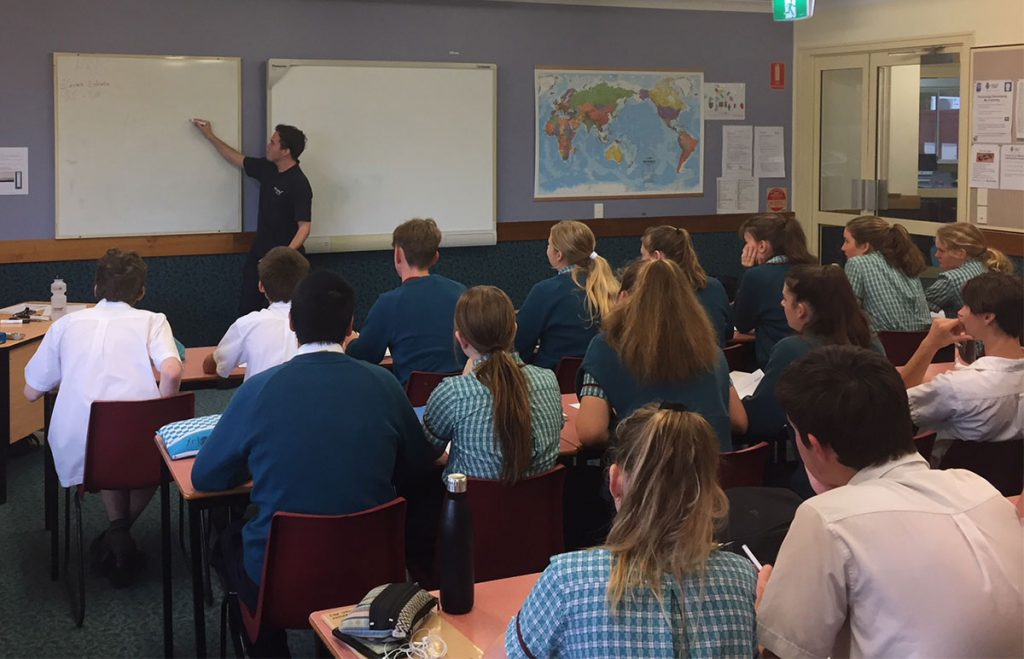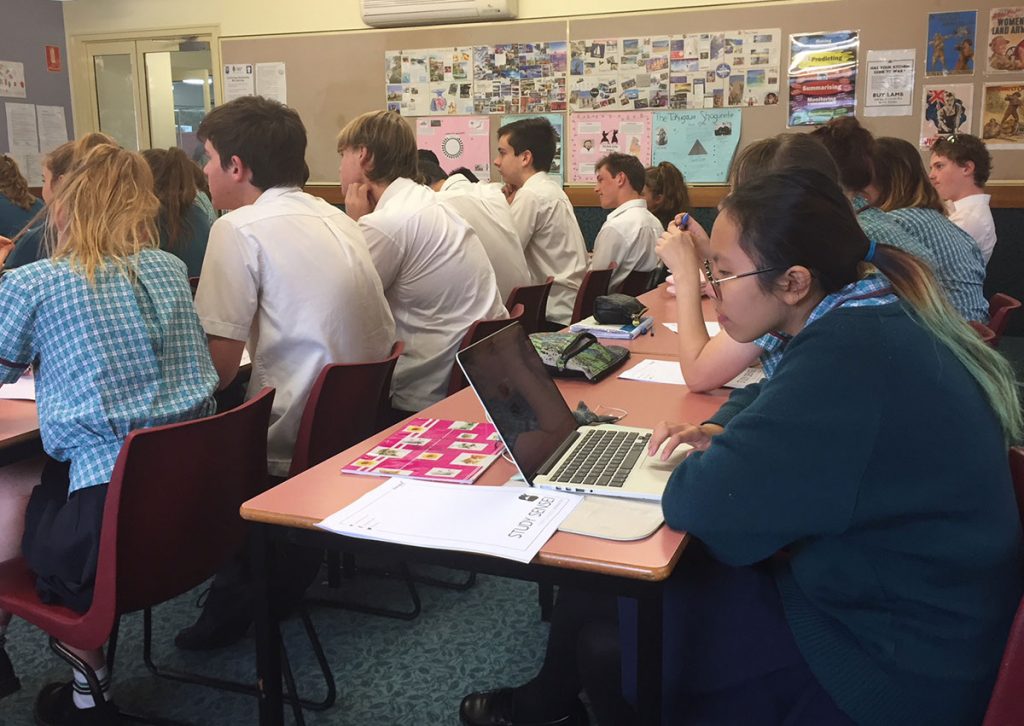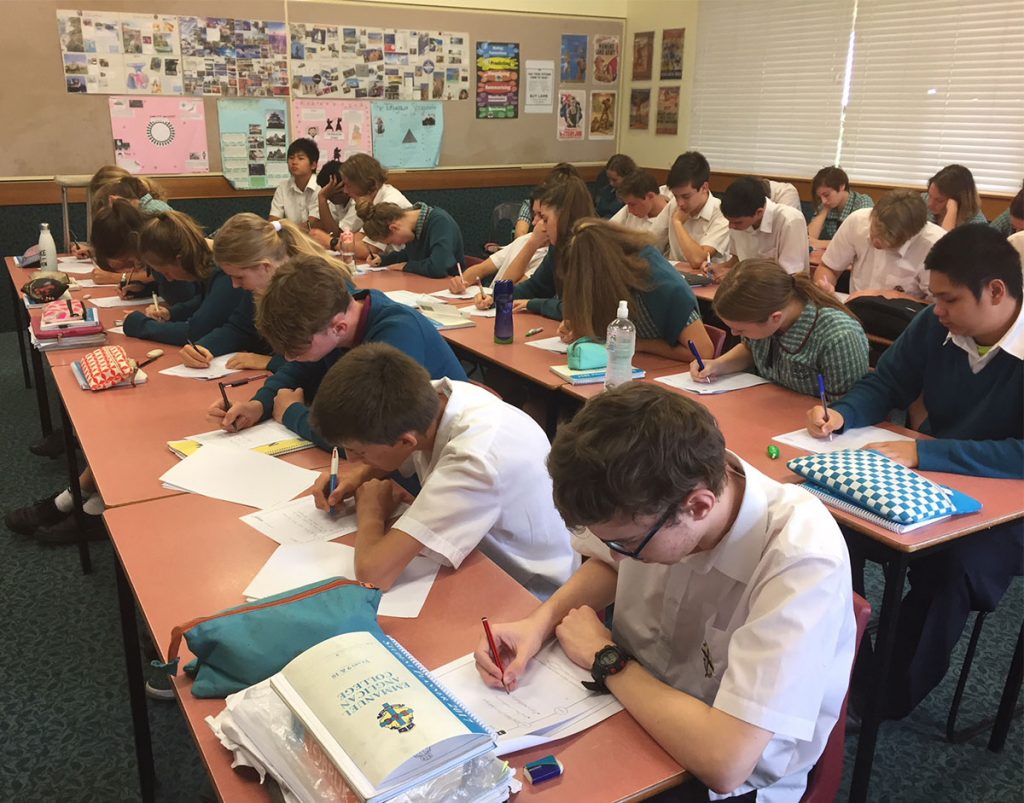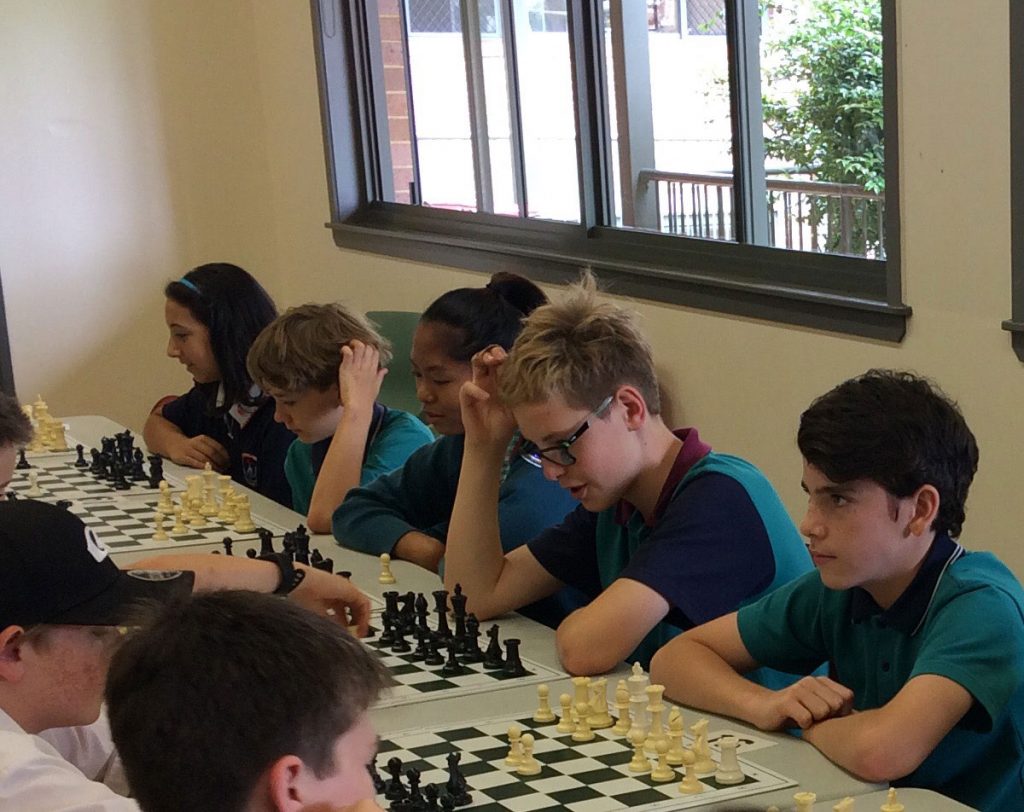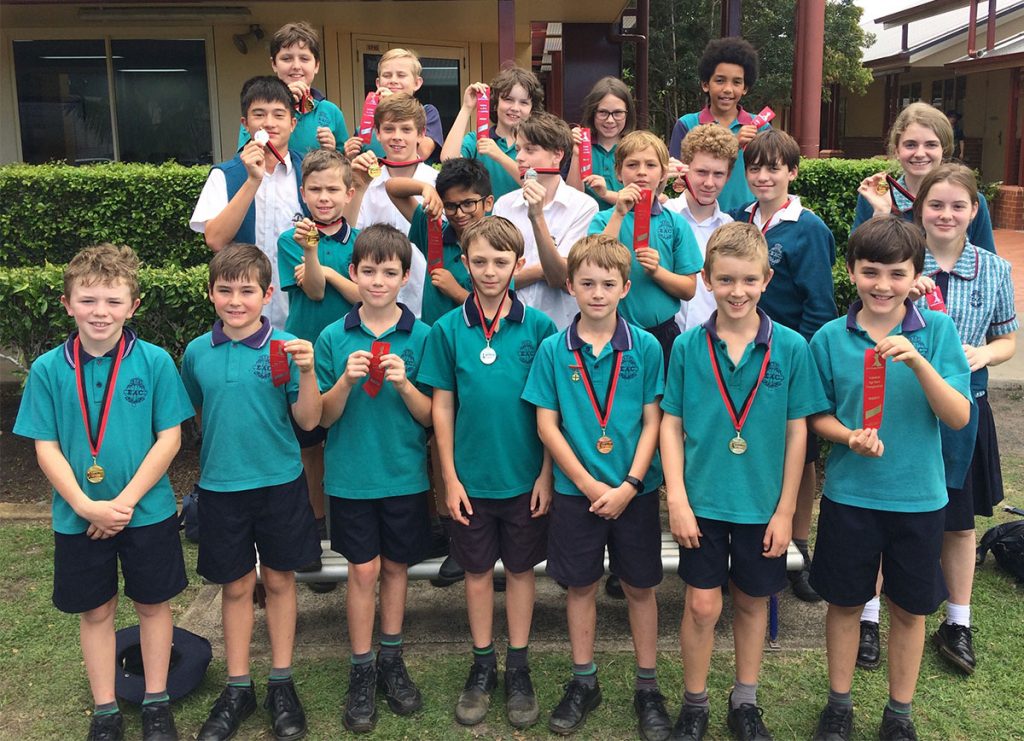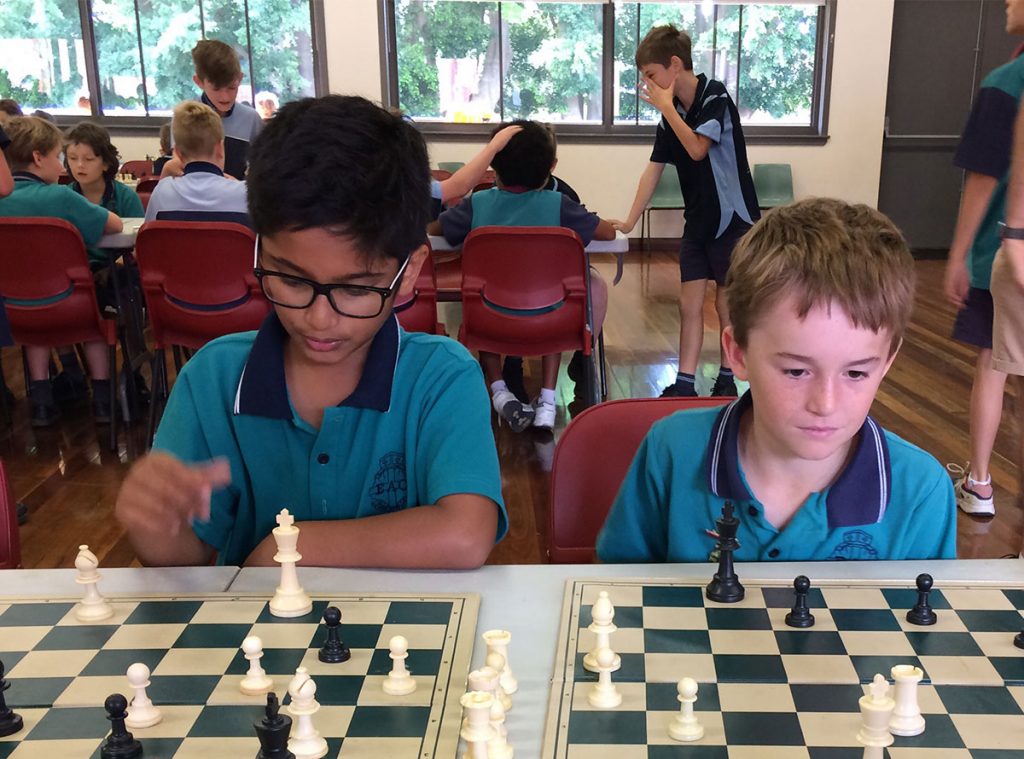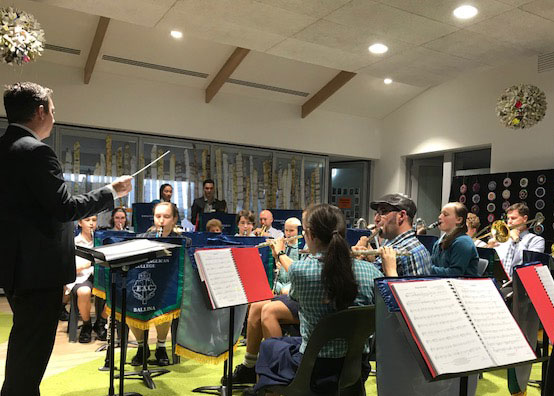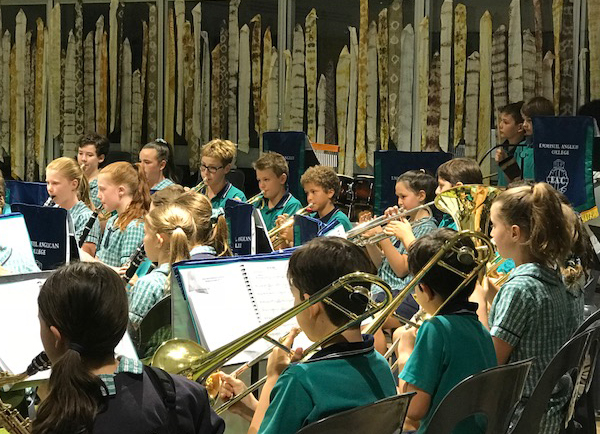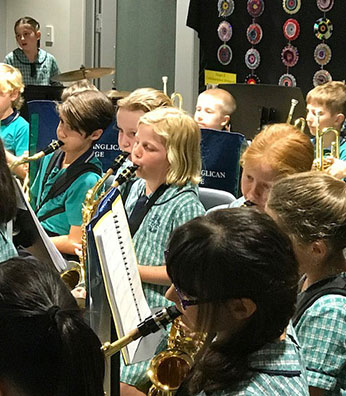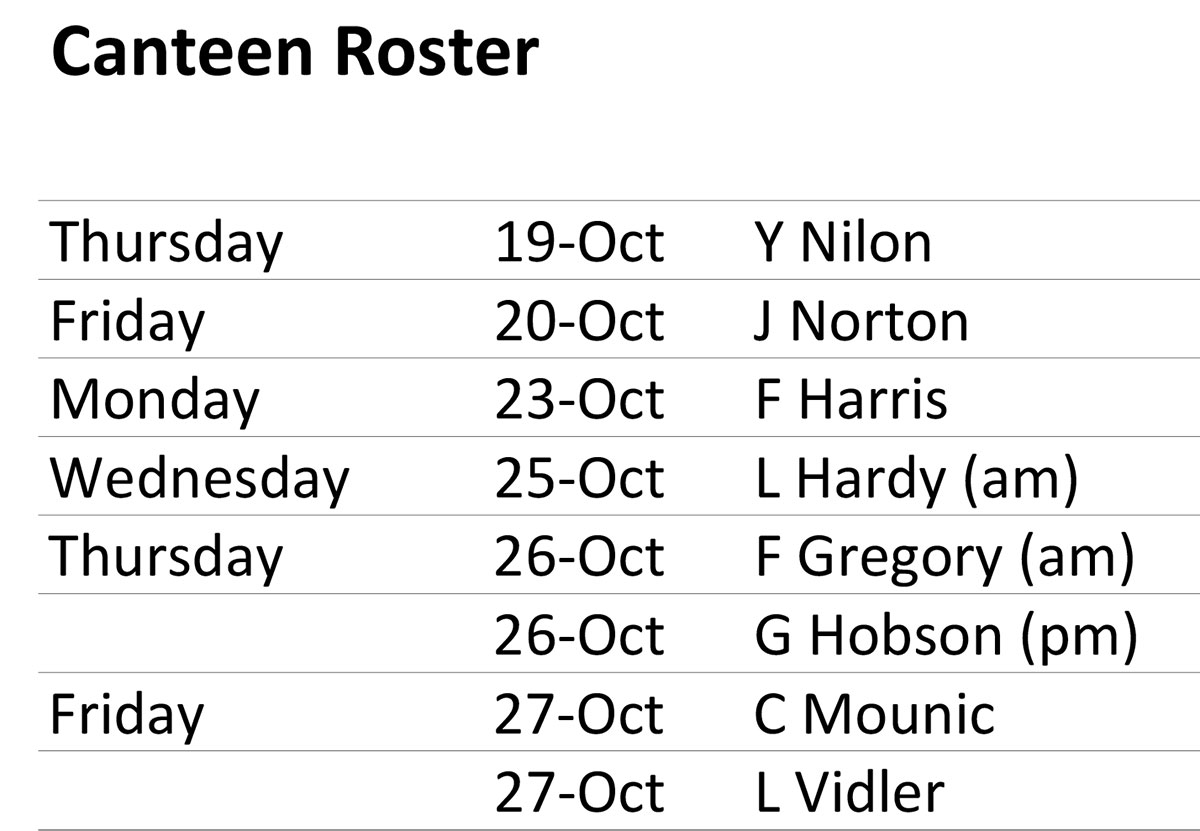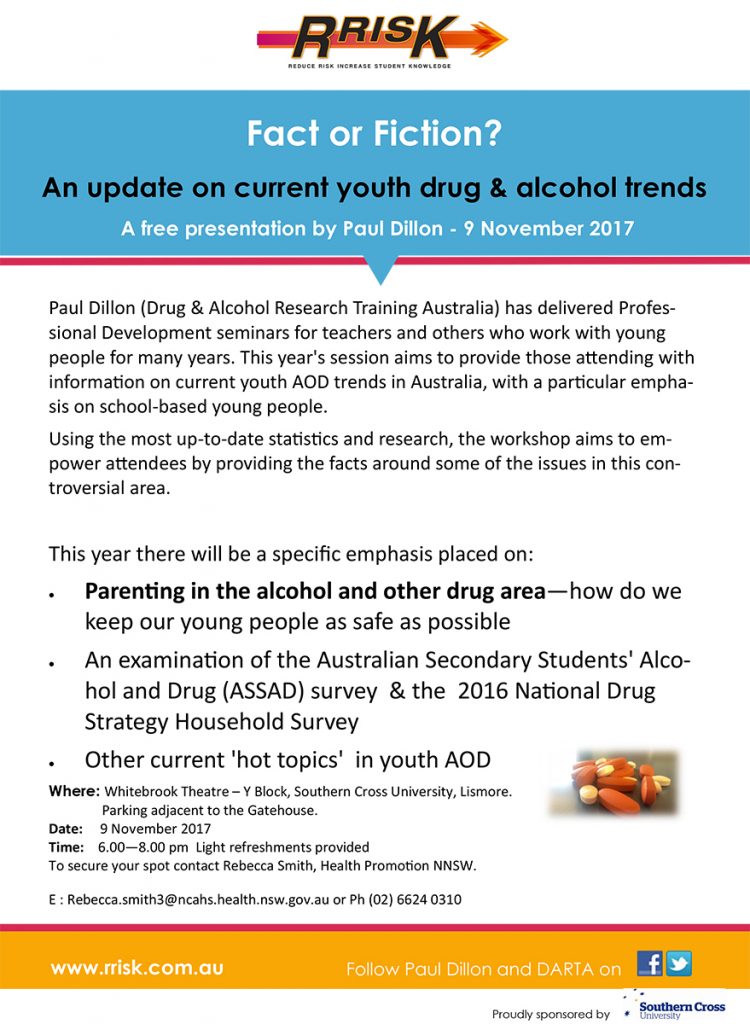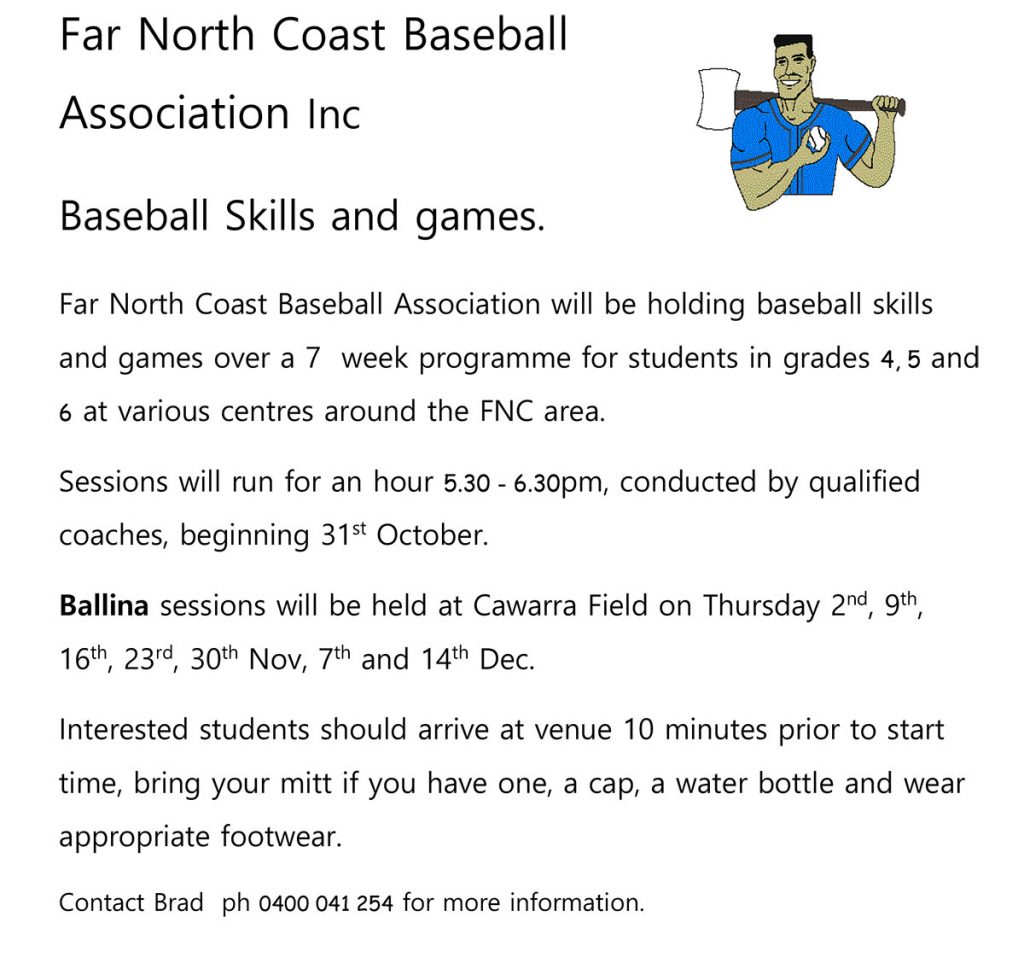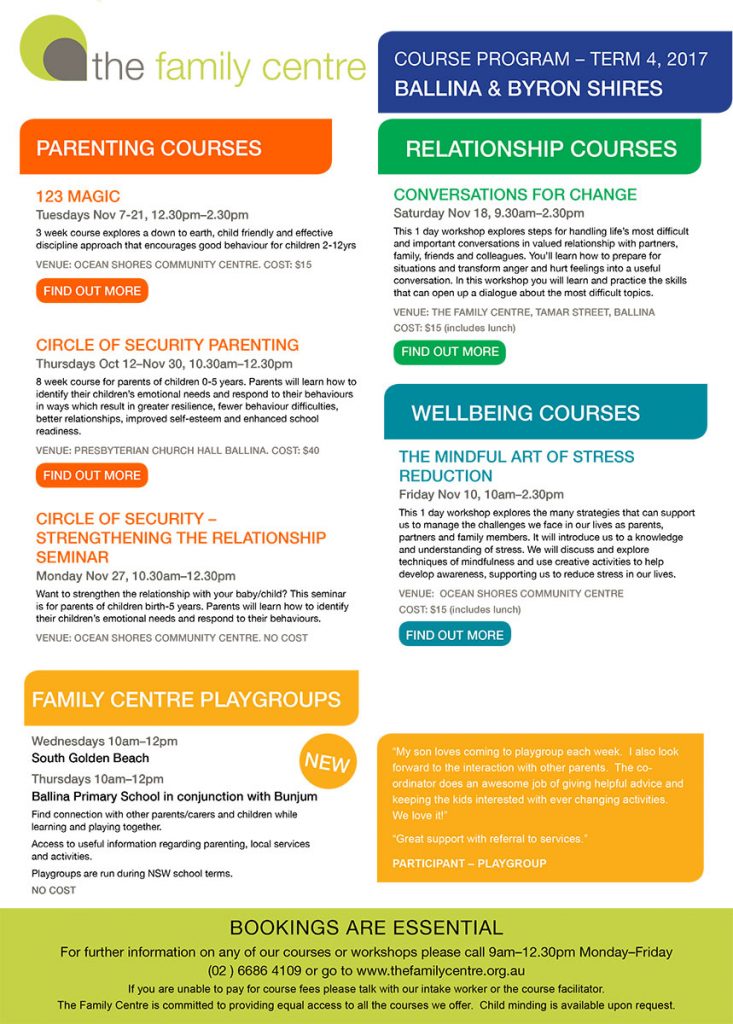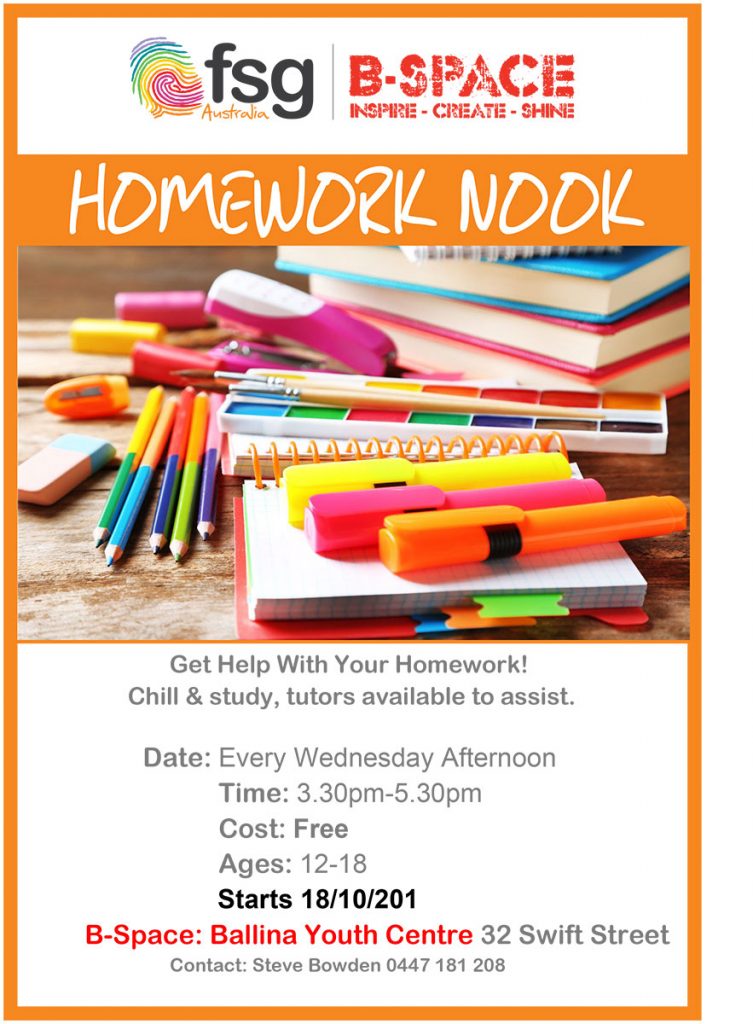“Therefore, everyone who hears these words of mine and puts them into practice is like a wise man who built his house on the rock. The rain came down, the streams rose, and the winds blew and beat against that house; yet it did not fall, because it had its foundation on the rock. "
Matthew 7:24-25
From The Principal
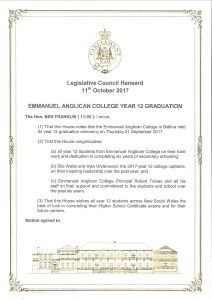 Thank you to all the parents and visitors who attended the Band Performance Evening on Monday night. There were performances from all our bands and it was delightful to hear the Year 3 Beginner Band who made their public performance debut. I am sure that they (and their families) are all very proud of their efforts, which saw them perform 6 pieces. The standard that these very young students achieve after 3 terms of lessons and rehearsals is remarkable. All of the students involved in the program have developed competence as players, music readers and band members. The opportunity to perform, while nerve racking, is wonderful in terms of building confidence and musicianship.
Thank you to all the parents and visitors who attended the Band Performance Evening on Monday night. There were performances from all our bands and it was delightful to hear the Year 3 Beginner Band who made their public performance debut. I am sure that they (and their families) are all very proud of their efforts, which saw them perform 6 pieces. The standard that these very young students achieve after 3 terms of lessons and rehearsals is remarkable. All of the students involved in the program have developed competence as players, music readers and band members. The opportunity to perform, while nerve racking, is wonderful in terms of building confidence and musicianship.
Congratulations also to the Primary Band and Secondary Band who both delivered extremely skilful, energetic and entertaining performances. The full, rich sound of a Concert Band in full swing is a great experience and coupled with the diversity of repertoire made viewing the performances very enjoyable.
Thank you, once again, to Mr Adam Holmes, Mr Justin Cleverly and the very talented group of tutors who work with our students on a daily basis and give them such amazing opportunities to develop their skills and share the joy of their music with others.
Last Thursday evening we held a very well attended Information Evening for Year 11 students and their families about the HSC. Students in Year 11 commence their studies for the 2018 HSC this week and learned about nature, expectations, demands and opportunities that the HSC presents. We certainly wish Year 11 well as they formally commence the last year of their schooling.
To support students in Years 10 and 11 to better meet the demands of their study we invited presenters from Elevate Education to share with the students some insights about maximising the effectiveness of their study skills. The program is prepared and run by young people that have recently successfully completed the HSC. They shared with the students the strategies and techniques they employed to help them succeed and also provided many insights and tips to students around a whole range of skills including note taking and storage, time management and planning as well as stress management and resilience building. Thanks to Mr Daniel Kelly who organised the seminars.
I had a lovely surprise last week, when I received an official notice from Parliament House NSW confirming that Emmanuel Anglican College, the Year 12 Class of 2017 and our College Captains, Ella Webb and Kyle Underwood had all being officially acknowledged and congratulated by the NSW Legislative Council. The motion was presented by the Honourable Mr Ben Franklin, and passed unanimously by the House. Mr Franklin is a great supporter of the College and it was a very lovely gesture to ensure that the official parliamentary record would pay tribute to our Year 12 students. I will ensure the officially embossed Hansard record is framed and placed on display.
Finally, we wish Year 9 Student, Caitlin Seamer all the very best as she participates in the United Nations Youth Voice Speaking Competition in Brisbane this week and best of luck to Year 11 student, Maddyson Lloyd who is about the compete at the Australian National Short Course Swimming Championships in Adelaide. Good luck girls!
Mr Robert Tobias
Principal
off the deputy's desk
Year 11 HSC information session
Thank you to the students and parents who attended last week’s information session. This week marks the beginning of the HSC courses for Year 11 – it’s time to really knuckle down and get into the swing of study.
Some tips from our current Year 12’s:
- Start working hard now – we wish we had been more consistent
- Use your teachers’ expertise
- Ask questions
- Don’t just do your homework, study as well
- Make your learning visible – put posters/notes etc up where you can read them every day
Lighthouse Reading Program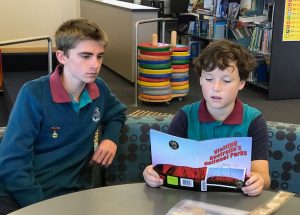
This week the Lighthouse Reading Program has started. Some of our secondary students have volunteered to read with primary students, either before or after school in the library. This is a great program – it builds relationships across the school, encourages leadership, and improves literacy. We are very proud of our students who continue to seek ways to develop their service and leadership skills.
Resilience
Over the past few weeks we have talked to many students about resilience, and the importance of being able to manage the normal ups and downs of life. The article below is very informative, and a good conversation starter.
Resilience: helping your teenager ‘bounce back’
| By Raising Children Network, with the Centre for Adolescent Health |
What is resilience?When young people are resilient, they cope better with difficult situations. They ‘bounce back’ when things go wrong. Young people need resilience to navigate life’s ups and downs, so building resilience is an important part of adolescent development.
Resilience is the ability to ‘bounce back’ after a tough situation or difficult time and then get back to feeling just about as good as you felt before. It’s also the ability to adapt to difficult circumstances that you can’t change, and keep on thriving.
When you’re resilient, you can learn from difficult or challenging situations and get stronger.
Your child needs the personal skills and attitudes to help her bounce back from everyday challenges such as making mistakes, falling out with friends, moving to a new school or losing an important sporting match. Your child might also face more serious challenges such as family breakdown, adapting to a stepfamily, the illness or death of a family member or bullying.
How resilient you act and feel can go up and down at different times.
You might be better at bouncing back from some challenges but not others. Some young people face more challenges than others because of learning difficulties or disabilities, or because they have more anxious personalities. The more challenges young people have, the harder it is for them to be resilient.
All young people can build the personal skills for resilience.
Resilience is more than just coping. When you’re resilient, you’re more prepared to seek new experiences and opportunities and take reasonable risks to achieve your goals. Risk-taking might mean some setbacks, but it also creates opportunities for success and greater self-confidence.
Building resilience: how you can help your child
Resilience for young people is built on a foundation of strong positive relationships with parents.
Children can also gain strength from other caring adults, such as grandparents, aunts, uncles or teachers who might act as mentors. Friends and classmates can be great sources of support too.
You can help your child build the ability to bounce back from difficult situations by giving him the opportunity to learn and practise important values and skills such as:
- self-respect and other personal values and attitudes
- social skills
- helpful and optimistic thinking
- skills for getting things done.
As a parent you can’t stop your child from experiencing problems or tough times. But you can play a big role in helping your child to be more resilient. And the earlier you start, the more likely it is your child will develop skills for resilience.
Personal values and attitudes for resilience
Self-respect is a great building block for resilience.
Self-respect grows out of setting standards for behaviour. If your child has self-respect, she believes that she matters and should be treated respectfully by others. She’s also more likely to protect herself by avoiding risky behaviour and situations. A strong sense of self-respect will also help your child be less vulnerable to bullies and bullying.
Empathy, respect for others, kindness, fairness, honesty and cooperation are also linked to resilience. This includes showing care and concern for people who need support, accepting people’s differences, being friendly and not mistreating or bullying others.
If your child shows these attitudes and behaviour towards others, he’s more likely to get a positive response in return. This helps him feel good about himself.
Having a strong, loving relationship with you and staying connected are the basis for all these qualities and values in your child. If you show your child love and respect, she’ll be more likely to care for herself and others.
Social skills for resilience
Social skills are another important building block for resilience. They include the skills needed to make and keep friends, sort out conflict, and cooperate and work well in a team or group.
When your child has good relationships at school and gets involved in community groups, sports teams or arts activities, he has more chances to develop connections and a sense of belonging.
You might like to read more about teenage friendships and how to support them. Our articles on keeping teenagers active, extracurricular activities and getting teenagers into community activity also have lots of ideas to help your child make social connections.
Helpful and optimistic thinking
Resilience is about being realistic, thinking rationally, looking on the bright side, finding the positives, expecting things to go well and moving forward, even when things seem bad.
When your child is upset, you can help her keep things in perspective by focusing on facts and reality. For example, you could try gently asking, ‘Does this really matter as much as you think it does? On a scale from 1-10, how bad is it really?’
You can also help your child understand that a bad thing in one part of his life doesn’t have to flow over into all parts. For example, if your child gets a poor exam result, you could point out that it won’t stop him playing his weekend sport, or going out with his friends.
A sense of humour can help you both keep things in perspective and stay calm.
If your child is being hard on herself – for example, ‘I’m going to die of embarrassment speaking in front of my class’ – you could suggest more helpful self-talk instead. For example, your child could try saying, ‘Public speaking isn’t my favourite thing, but I’ll be able to cope’.
Your child is more likely to feel positive if he can see that difficult times are a part of life, that they’ll pass, and that things will get better. You might be able to help your child with this by talking about how you, people you know, or even famous people have gone through tough times.
Talking and working together to find solutions can help your child be more resilient. And having a problem-solving method is one way for your child to feel she has the power to get through challenging times.
No matter how upbeat your child is, there’ll be times when he feels anxious, scared or angry. If he’s resilient, he’ll be able to ride out these adolescent ups and downs.
Ways to turn low moods into better ones include:
- doing things you love and enjoy
- spending time with friends
- helping someone else
- talking with friends or a support person
- exploring activities that help you relax
- going for a vigorous walk or doing some kind of physical activity
- going over some good memories by looking through photographs
- watching a funny TV show or DVD, or reading something funny.
You’re a role model for your child. Let her see and hear you being positive and optimistic. You can do this by thanking other people for their support, saying `Things will get better soon and I can cope with this’, and expecting that good things are possible.
Skills for getting things done
Feeling confident, capable and ready to get things done are big parts of resilience. Important skills in this area are goal-setting, planning, being organised and self-disciplined, being prepared to work hard and being resourceful.
You can foster these skills in your child by helping him work out his specific strengths and limitations. Then you can encourage him to set goals that put his strengths into action, and that help him to focus on what he’s good at.
For example, if your child is good at singing or music, you could suggest she join the school band, or even start her own band. If she’s good with young children, you could suggest she look into some babysitting work or coaching junior sport.
Supporting your child to take on new or extra responsibilities – a leadership role at school or even a part-time job as he gets older – is a great way to build your child’s confidence and sense of what he can do.
Challenges are a normal part of life, and young people have to learn to cope with them by themselves. Let your child have a go at sorting out her own problems and fighting her own battles before you step in. Fumbles and even failures are part of the process.
Key messages for building resilience
You can create a positive family environment that fosters resilience by communicating some key messages to your child in your daily life together:
- Life is mainly good, but now and then everyone has a difficult or unhappy time. It’s a normal part of life.
- Things nearly always get better, even though they might sometimes take a bit longer to improve than you’d like. Stay hopeful and work on the problem if you can.
- You’ll feel better and have more ideas about what you can do if you talk to someone you trust about what’s worrying or upsetting you.
- No-one’s perfect. We all make mistakes. We all find out there are some things we can’t do so well.
- If you can find something positive or funny in a difficult situation, no matter how small, it can help you cope better.
- Take fair responsibility for what you did or didn’t do to cause a difficult or unhappy situation. But don’t blame yourself too much – circumstances, bad luck or other people all played a part too.
- If something can’t be changed, you just have to accept it and live with it. Don’t make yourself miserable by making it worse or by assuming that the worst possible scenario is the one that will happen.
- When something goes wrong, it will usually affect only one part of your life. When this happens, focus more on the things in your life that are still going well.
- Everyone gets scared sometimes, but not always about the same things. Facing your fears can help you grow stronger.
- Don’t let yourself be ‘hijacked’ by your feelings so that you’re not in charge of yourself. Find a way to calm yourself down so you can think of the best way to deal with how you’re feeling.
Mrs Mellissa Evans
Deputy Principal
Sports update
Primary Sport Futsal Program
This term our Primary Students have been participating in a Futsal program for their school sport.
Futsal is FIFA's small sided soccer game played on a smaller field with a smaller ball. Futsal is a great skill developer, demanding quick reflexes, fast thinking and pin-point passing. It is an exciting game for children as well as adults. Futsal is played with a special low bounce ball, necessitating players to use their ball striking skills, rather than the ball's bounce, to propel it. In Futsal, players are constantly reminded to play the same quality control game that is required for success in the outdoor game.
Our Futsal sessions are being operated by “Just Futsal" with professional coaches Vinny and Arlo running a fantastic structured program for our students. The students and teachers are really enjoying the program which is keeping the students active and engaged all the time.
Mr Graham Walker
Sports and Coaching Administrator
Duke of Edinburgh's International Award 2018
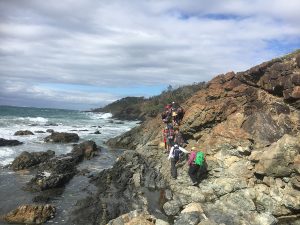 We have a very successful first year operating the Duke of Edinburgh International Award (Duke of Ed) with 27 students completing their Bronze Award. We are pleased to be offering the Award at Emmanuel Anglican College again during 2018. The Duke of Ed is open to students aged 14 years and over. In 2018 the program will be open to students from Years 9 upwards.
We have a very successful first year operating the Duke of Edinburgh International Award (Duke of Ed) with 27 students completing their Bronze Award. We are pleased to be offering the Award at Emmanuel Anglican College again during 2018. The Duke of Ed is open to students aged 14 years and over. In 2018 the program will be open to students from Years 9 upwards.
The Duke of Edinburgh International Award is a non-competitive self-development program which encourages young people to set and achieve goals while developing practical skills, behaviors and attitudes of communication, organisation, decision making, teamwork, confidence and commitment.
The Duke of Ed program is an internationally recognised qualification, highly regarded by employers and universities. There are three levels of the Duke of Ed: Bronze, Silver and Gold. We will be offering the Bronze and Silver level in 2018 with the Gold to be added in 2019.
Students will receive information about the program at College. Initial registrations for the program are via the parent lounge.
I look forward to your child taking advantage of this opportunity to join the Duke of Ed Program for 2018. If you have any questions about the Duke of Ed program please feel free to contact Mr Graham Walker gwalker@eac.nsw.edu.au .
Primary News
Basketball House Cup Challenge
Our Student Representative Council organised a Basketball House Cup Challenge, where students in each stage play in their house basketball team versing another house team in their stage. This was to encourage students to earn points for their house in a fun, social basketball game with their friends.
Stage three played last week, Walker earning 50 points for their house and Percival earning 25 points.
In the second basketball game, Smith earned their house 50 points and Brockington earned 25 with a bonus 5 points.
Next week Stage 2 students will join together to verse each other in the Basketball House Cup Challenge.
Merilyn Mule' Paul Christensen
K-2 Welfare Leader 3-6 Welfare
Commitment
Year 6 Explored the EAC value of Commitment
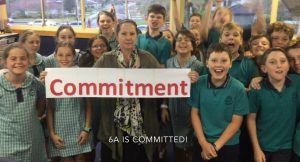 Our class was given the task of finding out what is Commitment, where we show it and why it is important. We worked in groups to create an imovie about our findings and presented these to the class. There were so many good ideas that we decided to create a whole class imovie taking parts from every group. The finished compilation was presented on Assembly.
Our class was given the task of finding out what is Commitment, where we show it and why it is important. We worked in groups to create an imovie about our findings and presented these to the class. There were so many good ideas that we decided to create a whole class imovie taking parts from every group. The finished compilation was presented on Assembly.Primary Teacher
VALUES BARREL
Christ-Likeness, Integrity, Compassion, Commitment and Excellence
Students receive tokens for demonstrating our College values on the playground. Tokens are placed in our Values Barrel and three names are drawn out, acknowledging and rewarding positive behaviour on the playground.
This fortnights three deserving winners are: Lachie, Lauren, and Ava.
Merilyn Mule' Paul Christensen
K-2 Welfare Leader 3-6 Welfare Leader
Secondary News
Study Skills
The College recently engaged the services of a specialist study skills provider in order to support students in their academic endeavours. Elevate education is Australia’s largest study skills provider who work with over 1500 schools and 350,000 students in the UK, USA, South Africa and Singapore. Students in Years 10 and 11 participated in two highly engaging and effective workshops: Study Sensei and Time Management.
The Study Sensei workshop covered:
- Utilising the syllabus to frame study
- Structuring and reviewing organised notes
- Conceptual learning to develop deep understanding
- Utilising practice exam papers
- Standing out through independent learning
The Time Management workshop covered:
- Developing routines to balance study and lifestyle
- Working smart by completing high value work
- Utilising study groups to leverage time
- Techniques for overcoming procrastination
Feedback from students has been overwhelmingly positive. They now have several practical tools to support their learning and develop more effective study habits.
Daniel Kelly
Curriculum Leader (HSIE, PDHPE, LOTE)
Special Events

Chess Competition
 On Thursday, 19th October, 38 primary and secondary EAC students travelled to St Joseph’s Primary School, Alstonville to compete in the final Far-North Coast Interschools Chess Tournament for 2017.
On Thursday, 19th October, 38 primary and secondary EAC students travelled to St Joseph’s Primary School, Alstonville to compete in the final Far-North Coast Interschools Chess Tournament for 2017.
After seven rounds of chess, many of our students placed within the top ranks of their age division and were awarded medallions and merit ribbons for their efforts.
Well done to everyone on a very successful day of competition. You represented the college with great pride and it was a pleasure to see all students leaving the day satisfied with their individual results.
Mr Tom Papworth
♔♛♗♞♙♜
Learning Support Teacher
Music Notes
Music Teacher
Friends of Emmanuel
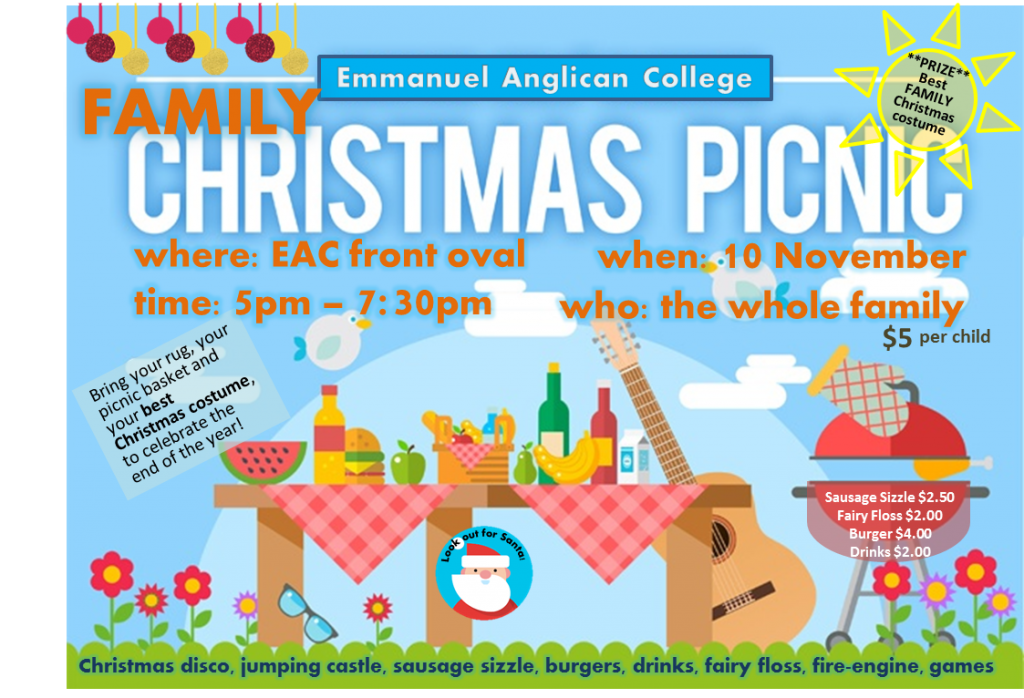
Canteen
EAC Canteen operates 4 days a week: Monday, Wednesday, Thursday & Friday, with special lunches on Tuesdays, canteen is open on Tuesdays for general sales at LUNCH only. Please note that I am unable to reheat food from home or provide hot water to students.
Canteen opens at 8.30am and the Menu is available here:
Sushi Dates: 31 October & 14 November
Noodle Box Dates: 7 & 21 November
Subway Date: 28 November
 Sushi – Tuesday 31 October
Sushi – Tuesday 31 October
Sushi from IGA, will be available from the canteen next Tuesday, 31 October . If you would like to order Sushi for your child’s lunch next Tuesday please complete the order form then attach your order to a paper bag with your payment enclosed. This should then be put in the canteen basket on Monday morning, 30 October . Order forms will be sent home but are also available at the canteen, office or online. WINTER menu is no longer available.
Order forms will be sent home but are also available at the canteen, office or online.
CANTEEN SURVEY – 2017
It is that time of the year again for the Canteen survey. This survey is used to check that the canteen is providing the services required within the college. Please encourage your child to complete this. Survey forms will be availabe from the canteen and are to be returned to the canteen.
This survey is for the students to complete and commences next week and will run for two weeks finishing on Friday 10 November.
PRIMARY LUNCH ORDERS
Please place the money in a paper bag of sufficient size to fit all of the lunch items. If you are ordering a drink with your child’s lunch please provide two (2) bags. Please remind your child to place their lunch/recess bag in the class tub NOT directly to the canteen.
PLEASE DO NOT STAPLE / TAPE BAGS CLOSED, FOLDED IN 4 APPEARS TO WORK WELL
BAG 1: Name, Class, Teacher, Lunch Order (John Smith, 5A, Mr Falvey, 1 Junior Pie)
BAG 2: Name, Class, Drink/Cold Order (John Smith, 5A, Mr Falvey, 1 Orange Juice)
Any change required will be placed in the bag for return with the child’s lunch order.
Christine Hall
Canteen Supervisor
0414 811 668

